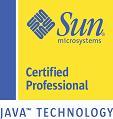Give engineers the same problem, they all will come with roughly the same solution. But I am proud to actually have invented a different one.
Many systems, such as ad servers, RTB bidders, DSPs, etc., store the business rules (targeting, pacing, etc.) information that a user manipulates via UI in some sort of database (likely RDBMS), and then probably transform it into some sort of fast lookup for the real-time decision making. Seems straightforward.
At OpenDSP we went for a new approach which I believe is quite powerful. Simply put, we compile the rules from DB into a Groovy script (well, a set of Groovy scripts). Given that Groovy compiles to JVM bytecode, essentially we create concrete subclasses conforming to the following interfaces and using the following abstract classes:
- For ads, that is, targeting, implementing Ad interface and subclassing AdImpl
- For creatives, implementing Tag interface and subclassing TagImpl
- Finally, there is BidPriceCalculator interface, which will be described below. This is not auto-generated.
A script that compiles the DB rules into the scripts is triggered by the UI whenever anything is saved, and the Lot49 process will reload any changed scripts every so often (e.g., 5 minutes).
Generally, the algorithm is as follows: During a request, the system will take the OpenRTB bid request and augment it with various data (e.g., geo lookup, information on user, etc). It will then, for each Ad, call its canBid1() and checkSegments() methods (both must return true). canBid1() is called first, to filter out quickly those ads that won’t bid based on the data already available in the request, before we augment it with data that needs to be fetched from a user cache; after that, checkSegments() will be called on the remaining candidates. In turn, canBid1() will call the canBid() methods of all Tags, to check which, if any, creatives fit this bid request (based on media type, size, video duration if applicable, etc.)
Finally, the price is determined based on pacing and budget settings, unless the appropriate BidPriceCalculator is found for an Ad, in which case it is used to get the bid price.
The resulting scripts are essentially a bunch of getters based on the rules in the DB, and the abstract classes implementing the interfaces are just a bunch of if/then statements using those getters. So, what is the advantage of this rather than just reading rules from the DB?
The advantage is that any part of the generated script can be modified manually for custom targeting and/or bid pricing based on some model. These scripts may be edited by data scientists independently, eliminating the need for engineers to translate data scientists’ models into code! All the data that the model needs will be provided in the arguments to the appropriate methods; just implement the interface in Groovy, and you’re done!
It is important that all data is provided in the input, so the scripts do not need to concern themselves with high-latency fetching of data from somewhere. It is also safe, even if the data scientist makes a mistake. Consider: because we run in JVM, we can take advantage of the Java security model and create our own SandboxSecurityManager to prohibit network calls, harmful calls such as System.exit(), only allow it to call helpers from certain packages, etc.
One caveat, however: security model is not much help for other harmful things such as recursion or infinite loops. The idea, however, is to solve those as follows (about which we’ll talk in a later post):
- Recursion: by using static analysis on the loaded code
- Loops: either by doing the same and prohibiting loops completely, or, if undesirable, by observing which scripts run longer than some time and blacklisting those that exceed the threshold.
Let’s look at some examples:
- Here is an Ad targeting US and one of the segments, “386:fp:236” or “387:fp:236”.
Quick note: “fp” here indicates it is a first-party segment; for more information on how these are created and managed securely in a multi-tenant environment, see Nanoput and other articles on our DMP elsewhere on this blog.
- A creative for this ad is a 300×250 banner. Notice the convention of how the ID of the Ad is included in the name of the Tag. This is for demonstration purposes, and thus a lot of code is unrolled here; in reality, methods like getClickRedir() or getTagTemplate() would just be used from the TagImpl class
- Finally, BidPriceCalculator (you can see it is defined in the Ad). As can be seen, it uses a formula based on a segment score and a viewability score from Integral to come up with a price. (This, of course, is just an example.) Notice that the information about the user’s score, which is part of the DS-built model, and Viewability score are part of the augmented request that is the argument to getBidPrice() method. In other words, as noted above, the code here needs to just execute a formula, and all the data will be provided to it; this allows us to sandbox this code for safety while allowing for flexibility.
Pretty cool, if I may say so myself.
P.S. You may feel free to contrast this approach with Xandr’s Bonsai.
Music of the post: Feeling groovy
